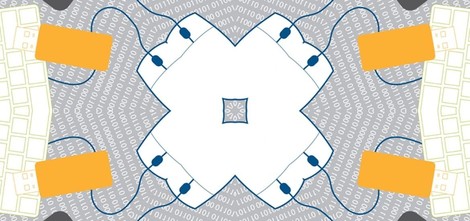Your podcast discovery platform
Curious minds select the most fascinating podcasts from around the world. Discover hand-piqd audio recommendations on your favorite topics.

piqer for: Global finds Technology and society Globalization and politics
Elvia Wilk is a writer and editor living in New York and Berlin, covering art, architecture, urbanism, and technology. She contributes to publications like Frieze, Artforum, e-flux, die Zeit, the Architectural Review, and Metropolis. She's currently a contributing editor at e-flux Journal and Rhizome.
Prioritize Your Writing, Not Your Inbox
As a freelance writer, as I suspect for most of us, it often seems like the bulk of my work takes place in my inbox, not on the page. This opinion piece by Melissa Febos, arguing that women feel more pressured to constantly perform this kind of immaterial labor of correspondence in a friendly and efficient way, struck a personal chord. I suspect that, while women are overburdened in this regard, the pressure to reliably respond to requests coming in by email is something everyone can sympathize with—especially those of us in industries where the assignments are unstable and the power dynamics are wonky.
Describing an exchange with a well-known writer she admired, Febos explains that his erratic response time did not diminish her respect for him. But “women are not taught to do this,” she explains.
“We are conditioned to ever prove ourselves, as if our value is contingent on our ability to meet the expectations of others. As if our worth is a tank forever draining that we must fill and fill.”
This is framed as an essay for writers who have other writing to do than signing “Best Wishes” a hundred times a day: writers whose energies for generating content might be sapped out by attending to their emails. But Febos’ message (and useful tips for how to re-prioritize) applies to anyone who finds herself feeling unable to postpone commitments that seem important over creative work. In the digital age, learning to prioritize and fight our own tech-addiction matters for everyone. Ultimately Febos asks:
“Do you want to be a reliable source of literary art (or whatever writing you do), or of prompt emails?”
